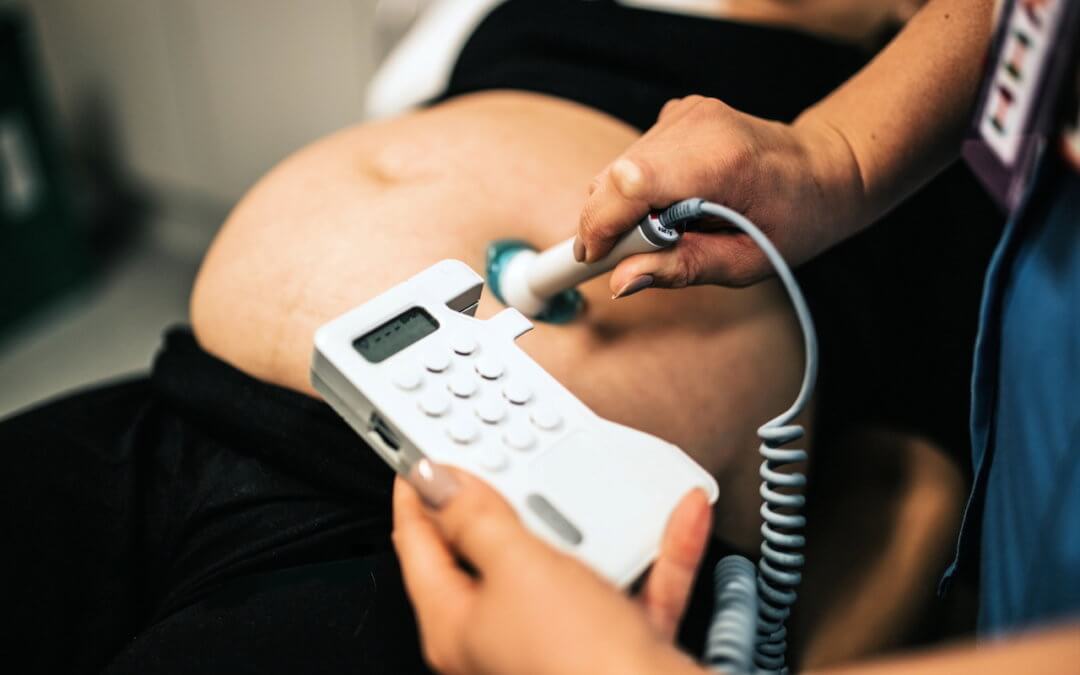When I tell people I’m a doula, I am often met with the response “WOW, so you deliver babies?!”
Well, no. I think you’re thinking of a midwife.
Or midway through massaging my pregnant clients I get asked, “And you’re a doula too right?” Followed shortly by, “So how is a doula different from a midwife?”
So if you’ve been wondering what exactly is a doula and where do they fit into the birth picture, I am going to clarify the differences between midwives, doulas and doctors from my perspective, training and experiences.
Midwives and doctors/OBGYNs fall under the same category as far as birth goes. You either have one or the other following you through your pregnancy, birth and postpartum.
Unless you have this rare team that works together; a midwife and a doctor. In Winnipeg, out of Seven Oaks there is the Community Birth Program in which a midwife and doctor work together as a team to provide care.
Midwives are an excellent option for low risk pregnancies. If you are considered high risk, you will need to go with an OBGYN for your pregnancy and labour/delivery. If you start out low risk and become high risk at some point in your pregnancy, you will need to be transferred care to a doctor team. Sometimes you can stay under the care of your midwife if you become high risk but it really depends on the situation, and every pregnancy is assessed individually to determine the best possible care.
With midwives you have a choice when it comes to preferred birthplace-home, hospital or birth center. When you have a doctor team, your birth place is the hospital: either St. Boniface or Women’s out of Health Sciences Center. Typically your doctors will work out of one or the other so if you would like to give birth at a certain hospital you will have to choose a care provider that attends births at that hospital.
As far as prenatal care and the differences between midwives and doctors I can tell you what the textbooks, brochures and websites say.
But keep in mind that what happens in reality is sometimes different. Just keepin it real here. Everybody practices differently, and every pregnant person’s experience is different.
- Prenatal Appointments: Most will tell you that prenatal appointments with doctors are short. Midwife prenatal visits can be upwards of half an hour.
- Training. Midwives are generally trained to assist in low risk births and do not have training in interventions such as forceps, vacuum and caesarean births. If these situations they would need to call a doctor to perform these tasks if they were required. Doctors are trained to intervene in high risk birth situations. Some say this is a disadvantage to their care as they are always on the lookout for something to go wrong, but I have also seen some doctors who are very hands off and trust in birth and the process of labour. We really can’t paint all care providers with the same brush.
- Labour: Midwives are typically there in the room to support you throughout the entire labour and birth experience.They are available to provide support, monitor labour and health of birther and baby generally the whole time once they arrive to the birth. With doctors in a hospital setting you are generally under the care of a nurse the whole time in your labour room. The doctor pops in periodically to check and see how things are going or the nurse may call them in for an assessment or consult at any time. Then they are called into the room when it’s time to push or once pushing has begun to deliver the baby.
- Postpartum: Midwives offer several in home postpartum visits to check on birther and baby as well as provide support with anything from breastfeeding to infant care, healing and answer questions. When you have a doctor, a public health nurse will either call or make a home visit.
Those are the big differences I can think of at this moment and based on my current knowledge and experience. So now, where do doulas fit in to this whole experience?
Doulas are considered support people. We provide physical, emotional and informational support during labour. To sum up the main difference between doulas and midwives, you could say that the midwives take care of the health of mom and baby and are there to deliver your baby. The doula is there to support the birthing person and their partner. Midwives do so much more than that, but to make the clear distinction between doulas and midwives that is where they differ. In a nutshell. Doulas are not trained medical professionals and cannot deliver your baby.
During pregnancy we meet with you to get to know you, your birth wishes and preferences, teach you various coping strategies and generally what to expect during labour. We go over your options and help you put together a birth plan. We spend a lot of time educating you about your rights as a birthing person, teaching you what informed consent is and how to ask questions to make sure you have all the information before making a decision during labour.
I personally believe that our job during the pregnancy is to help educate the birther and the birth partner what their rights are, give them tools and empower them to ask questions so that when they are in labour they do not feel like they need someone to advocate for them. Because that’s not what we do as doulas. We are there to support birthing people.
During labour doulas provide hands on physical support. That might look like massage, acupressure, counterpressure and hip squeezes. Making sure the birther and partner are hydrated, fed and nourished. Making sure the birthing person is comfortable by suggesting positions, giving them a warm blanket, or offering a cool cloth if they are warm and working hard.
We give guidance to the partner (if they need/want it) to provide these things as well and make sure their needs are met too by encouraging breaks, hydration, rest and eating throughout.
Emotionally, we offer reassurance, encouragement and hold space for whatever you are experiencing. Sometimes we merely are observing all that is happening and holding a place of calm and grounding for you.
We are there to provide suggestions for positions, and help you navigate different scenarios that come up. We have knowledge about labour progression and things you can do to help encourage a physiological birth with ease.
We can help you hash out the pros and cons of what your care provider is suggesting and encourage you to follow your gut on what you need to feel supported. We remind you to ask questions about your care and what your options are if you are not sure what to do. We are more like a sounding board rather than someone who makes decisions for you.
So no, we don’t deliver babies. But we are there for you. The birther. And your partner (if you have one). 100%. We provide continuous support throughout early labour, active labour, birth and the immediate postpartum. We are there to serve YOU, with whatever you need to feel supported.
And lastly, another question I get a lot. “Do you pay for midwives and doulas?”
Doulas are paid by you, the client. Midwives and doctors are paid by Manitoba Health and the client does not pay them. Midwifery care in Manitoba is very limited with about 6% of birthing people having access to their care during pregnancy.
Many people who wished for midwives but have doctors for their care like to have doulas. However, there are still benefits to having a doula if you have a midwife. Which is a whole other blog post on its own. And if you choose to have a doctor, you can still choose to have a doula. Are you getting my drift?
No matter where you choose to birth, or who your care provider is, you can benefit from having a doula!
It is also important to note that one type of care provider is not better than the other. Although some would argue with that statement, it really just comes down to personal choice and preference. At the end of the day you should feel respected, heard and comfortable with your care provider. If you don’t, there is nothing wrong with switching mid pregnancy. You deserve to feel supported and treated well during this especially vulnerable time of life! If you have any questions, comments or are looking for a doula in Winnipeg-don’t hesitate to drop me a line at lori@gaiamamawellness.com
*These views are my own and all doulas may practice slightly differently.



